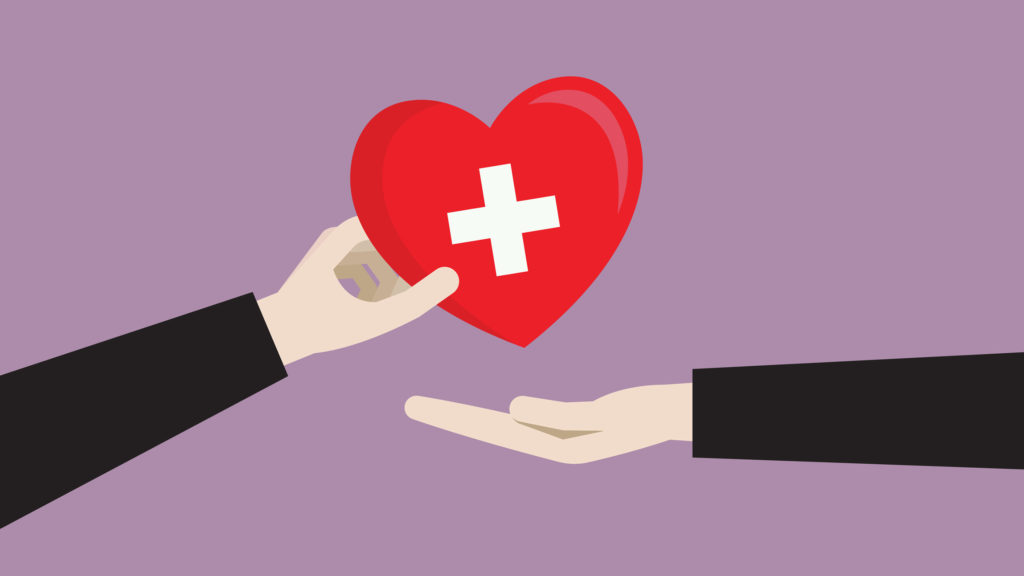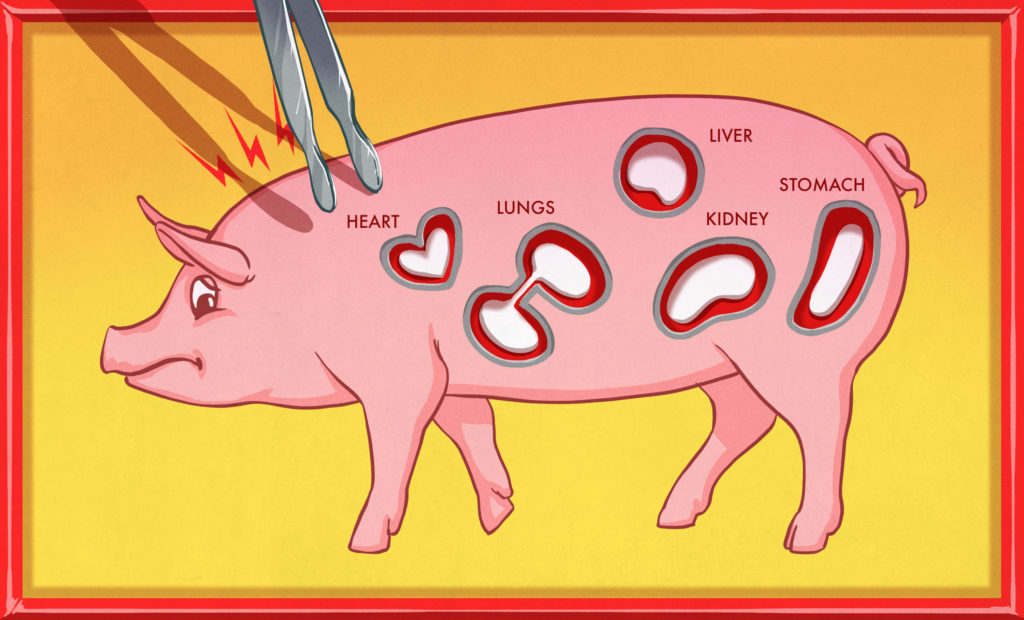From the day I received my driver’s license, I have been an organ donor. To be honest, I’d never given it a second thought. That is until a vegan colleague of mine confided to me that she is not.
Her logic? Organs would probably be donated to nonvegans who would go on to eat, wear, and use other animals for years to come. Saving human lives would mean ensuring nonhuman deaths, potentially several hundred nonhuman deaths, within those human lifetimes.
My colleague is a deeply compassionate person and is devastated by humanity’s violence against other animals. Her heart (excuse the pun) is in the right place. Practically speaking, however, this approach is debatable, to say the least.
First, Nonhuman Animals are often killed so that their organs can be harvested for humans. I would much rather pass on my unneeded organs that would otherwise be cremated and spare a pig or a monkey.
Second, letting nonvegans die supports the noxious stereotype that vegans are misanthropes.
Most fundamentally, however, it is not fair or ethical to punish individuals for structural problems. By my colleague’s logic, humans in all sorts of unfortunate situations should be abandoned: victims of genocide, survivors of domestic violence, cancer patients, and more. Most of them are not vegan. Should vegans withhold resources and support? Certainly not.
The vegan community too often makes the mistake of conflating individuals with systems. Just as it would be problematic for vegans to kill obligate carnivores (like cats) to prevent them from eating the flesh of cows, pigs, chickens, fishes, and others whose bodies comprise “pet food,” we would not want to let humans in need die because they might not be vegan.
Often, vegan advocates assign much more agency to individuals than is appropriate. Everyone enjoys some degree of “choice” and “free will,” but the choices available to us and our capacity to recognize them are greatly dependent on preexisting structural conditions. Placing blame on nonvegans for consuming Nonhuman Animals, in other words, is a fraught enterprise. Speciesist industries have amassed considerable power which is applied to all major social institutions to reproduce this power and normalize a deeply unequal system. It is the job of vegans to disrupt this normality, not to punish those who fall victim.

Readers can learn more about sociological vegan ethics in my 2016 publication, A Rational Approach to Animal Rights.
Receive research updates straight to your inbox by subscribing to my newsletter.

